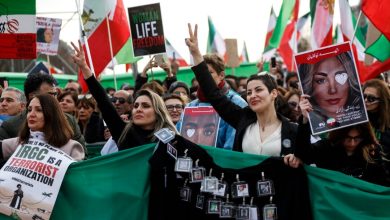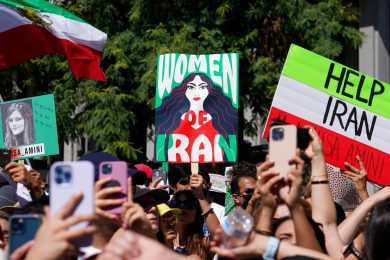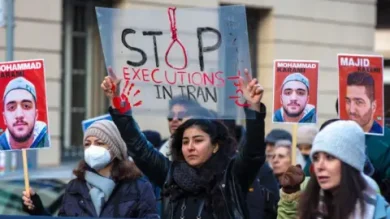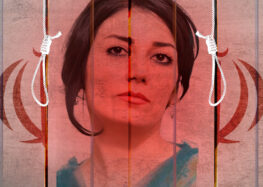In the Islamic Republic of Iran, gender is not only a cultural boundary but a political weapon. At the center of this weaponization is the Islamic Revolutionary Guard Corps (IRGC), a military and ideological force that plays a crucial role in maintaining the Islamic Republic’s rigid control over society—particularly over women. Through a network of laws, surveillance, intimidation, and violence, the IRGC helps enforce a system that amounts to gender apartheid, segregating and subjugating women in every aspect of life.
This analysis examines:
• What gender apartheid means in the Iranian context
• How the IRGC acts as an enforcer of this system
• The methods it uses to instill fear and suppress resistance
• The broader consequences for Iranian society and international human rights
• Why global accountability and solidarity are essential
1. Understanding Gender Apartheid in Iran
Gender apartheid is a term used to describe systematic and institutionalized discrimination based on gender. In Iran, it manifests in:
• Mandatory hijab laws
• Legal inequality in marriage, divorce, inheritance, and testimony
• Restricted access to public spaces, sports stadiums, and employment
• Surveillance and punishment for behavior deemed “improper”
Iranian law treats women as second-class citizens, and the IRGC acts as the muscle behind this legal framework, ensuring women do not cross these state-imposed boundaries.
2. The IRGC’s Role in Enforcing Gender Apartheid
A. Surveillance and Intelligence Operations
The IRGC’s intelligence units monitor women who speak out, share images without hijab online, or engage in activism. Women journalists, lawyers, and students are often arrested under vague charges like “corruption on Earth” or “acting against national security.”
B. Morality Police and Basij Forces
While not directly part of the IRGC, morality enforcers and Basij militias often operate under its broader influence. These groups:
• Patrol streets to check hijab compliance
• Raid parties, private gatherings, and even weddings
• Arrest and assault women for dancing, singing, or dressing “improperly”
C. Prison and Torture
Women arrested for defying gender laws often end up in Evin or Qarchak Prison, controlled or influenced by IRGC-affiliated authorities. Reports include:
• Torture
• Sexual abuse
• Solitary confinement
• Forced confessions
These methods are used to break the will of activists and deter others from following in their footsteps.
3. Control Through Fear: Psychological and Social Warfare
The IRGC doesn’t only punish—it instills fear as policy.
A. Public Punishments and Intimidation
• Women are shamed in state media
• Forced confessions are aired as deterrents
• Families are threatened or blackmailed to silence dissent
B. Targeting Prominent Voices
Women like Narges Mohammadi, Nasrin Sotoudeh, and Sepideh Gholian have faced brutal consequences for activism. Their arrests serve as examples to frighten others into silence.
C. Social Media Repression
The IRGC’s cyber units target women online through:
• Hacking accounts
• Doxxing and leaking personal information
• Surveillance and digital entrapment
Women who use Instagram, Twitter, or Telegram to organize or expose abuses often find themselves monitored and arrested.
4. Broader Consequences for Iranian Society
A. Suppressed Talent and Productivity
Gender apartheid enforced by the IRGC has stifled half the population, limiting Iran’s potential in education, science, culture, and governance.
B. Radicalization and Despair
Many young Iranians—especially women—view the state as irredeemable. The result is:
• Mass emigration
• Mental health crises
• Increased suicide and self-immolation cases in protest of oppression
C. Growing Resistance
Despite fear, resistance is growing. The slogan “Women, Life, Freedom” encapsulates a movement demanding more than reform—it demands liberation.
5. International Response and the Need for Global Solidarity
A. Designating the IRGC
The United States officially designates the IRGC as a Foreign Terrorist Organization due to its role in terrorism and human rights violations.
Other countries, particularly in Europe, are under pressure to follow suit, which would:
• Isolate the IRGC globally
• Limit its financial networks
• Show solidarity with Iranian women
B. Sanctions and Accountability
Targeted human rights sanctions on IRGC officials involved in gender oppression are essential. Legal bodies must document these abuses and push for international accountability.
C. Supporting Iranian Women
Governments and civil society can:
• Amplify Iranian women’s voices globally
• Provide tech tools to bypass digital repression
• Offer asylum and protection to at-risk activists
Conclusion: Fear Will Not Silence Freedom
The IRGC’s campaign of gender apartheid is not just about control—it’s about fear, erasure, and the systematic destruction of female agency. But Iranian women, through their courage and persistence, have defied fear.
Join Our Newsletter!
Stay informed with the latest updates, news, and ways to take action in the fight for justice and global security. Sign up now to get updates delivered straight to your inbox!





